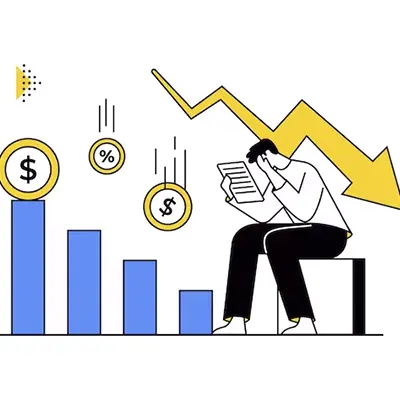Why Web Security Is Essential for Your Business
Web security for business is no longer a luxury or just a preventive measure; it’s a fundamental pillar for any company operating in the digital landscape. Every day, thousands of businesses suffer cyberattacks that threaten not only their operations but also their customer trust and brand reputation.
While small and medium-sized businesses often believe they are off hackers’ radar, the reality is they are frequent targets due to the perception of having weaker security systems. For this reason, investing in web security is crucial to protect your digital assets, ensure business continuity, and comply with legal regulations.
In this article, we’ll explore why web security is essential for your business and how it can help you build a solid foundation to operate in an increasingly complex digital environment.
1. Protect sensitive data of your business and customers
One of the biggest risks of operating online is the possibility that sensitive data—such as financial or personal information—ends up in the wrong hands. A failure in web security can lead to:
- Loss of confidential data: Information such as names, addresses, credit card numbers, or login credentials can be stolen.
- Reputational damage: Customers lose trust in businesses that fail to protect their data.
- Legal consequences: Regulations like GDPR in Europe or CCPA in California impose heavy fines for security breaches.
Implementing robust protocols like data encryption and two-factor authentication helps mitigate these risks and ensures information remains protected.

2. Ensure business continuity
A cyberattack can bring your operations to a standstill, from database access to website functionality. Common attacks include:
- Ransomware: Hackers lock access to your systems until a ransom is paid.
- DDoS attacks: Your site is overwhelmed with fake traffic, making it inaccessible to real users.
- Phishing: Employees are tricked into revealing passwords or critical information.
Web security not only protects against these attacks but also ensures your business can continue to operate under threat. This includes having regular backups and disaster recovery plans in place.

3. Build customer trust
Consumers are increasingly concerned about their online privacy and data security. In fact, more than 70% of users avoid making transactions on websites they perceive as unsafe.
By investing in web security, you demonstrate to customers that:
- You care about protecting their data.
- You are committed to providing a secure digital environment.
- Your company is professional and trustworthy.
Displaying security badges, implementing SSL certificates, and ensuring secure transactions are fundamental steps to building trust.

4. Comply with legal regulations
In 2024, complying with data protection laws is a must for any company that collects user information. Some of the most important regulations include:
- GDPR (General Data Protection Regulation) in Europe.
- CCPA (California Consumer Privacy Act) in the United States.
- Personal Data Protection Laws in many Latin American countries.
These laws require companies to implement specific security measures to protect customer data. Non-compliance can result in significant fines and serious damage to your company’s reputation.

5. Strengthen your reputation in the market
In the digital world, a security breach can cause irreversible damage to your brand image. For example, major companies like Yahoo and Equifax have faced billion-dollar losses due to security failures.
On the other hand, businesses that prioritize web security:
- Are seen as trustworthy leaders in their sector.
- Attract customers who value data protection.
- Gain a competitive edge over companies that neglect security.
Web security is not just a tech investment—it’s a strategy to build and maintain a strong reputation.

6. Avoid financial losses
The cost of a cyberattack can be devastating. Recent studies show that small and medium businesses can lose thousands of dollars in revenue and face high recovery costs after an attack.
Key losses include:
- Lost revenue: When your website or system goes offline.
- Recovery costs: Including technical support, system rebuilding, and ransom payments.
- Legal penalties: For failing to meet data security regulations.
Investing in preventive measures such as firewalls, intrusion detection, and continuous monitoring is far more cost-effective than dealing with the aftermath of an attack.

Web security is a strategic priority
In a digital-first world, protecting your website and customer data is essential for business success. From boosting customer trust to avoiding financial losses, web security is an investment that benefits every area of your company.
Ready to strengthen your company’s security? At Digital Nexus, we have the tools and expertise to secure your digital environment and take your business to the next level. Contact us today and let’s safeguard your future!


 info@digitalnexustec.com
info@digitalnexustec.com +51 979 363 455
+51 979 363 455

